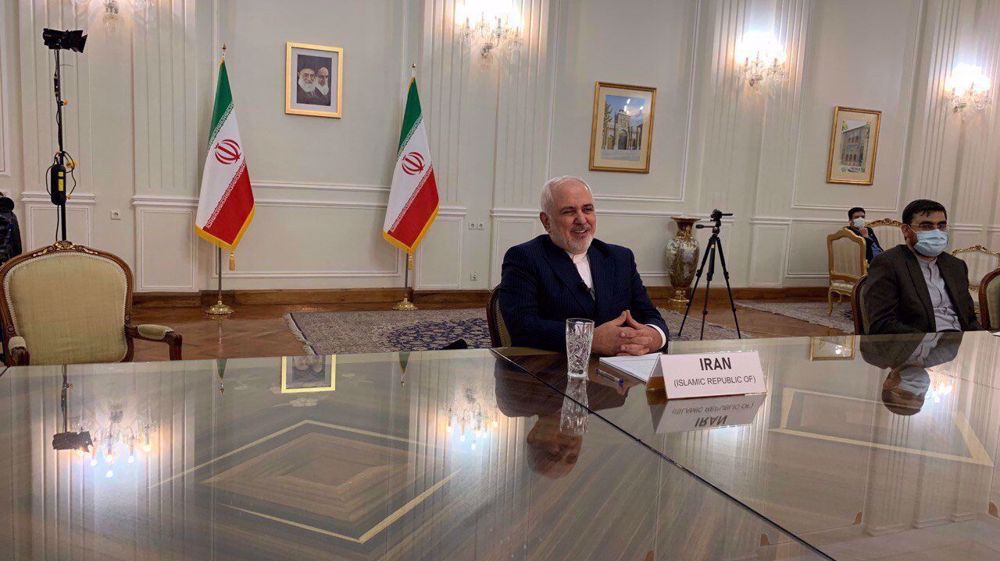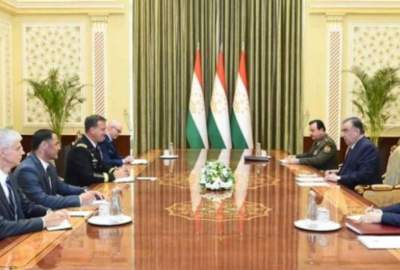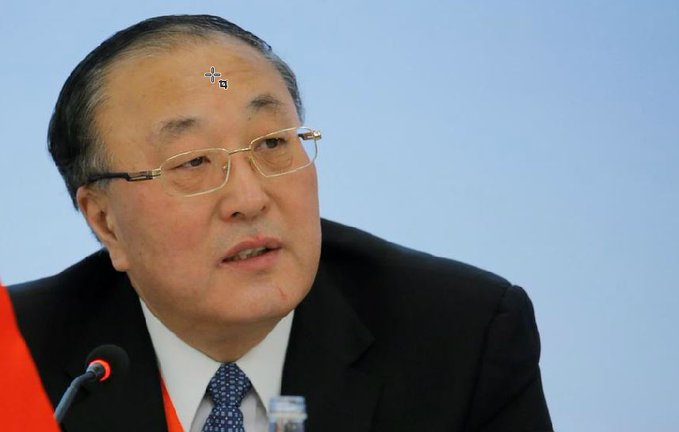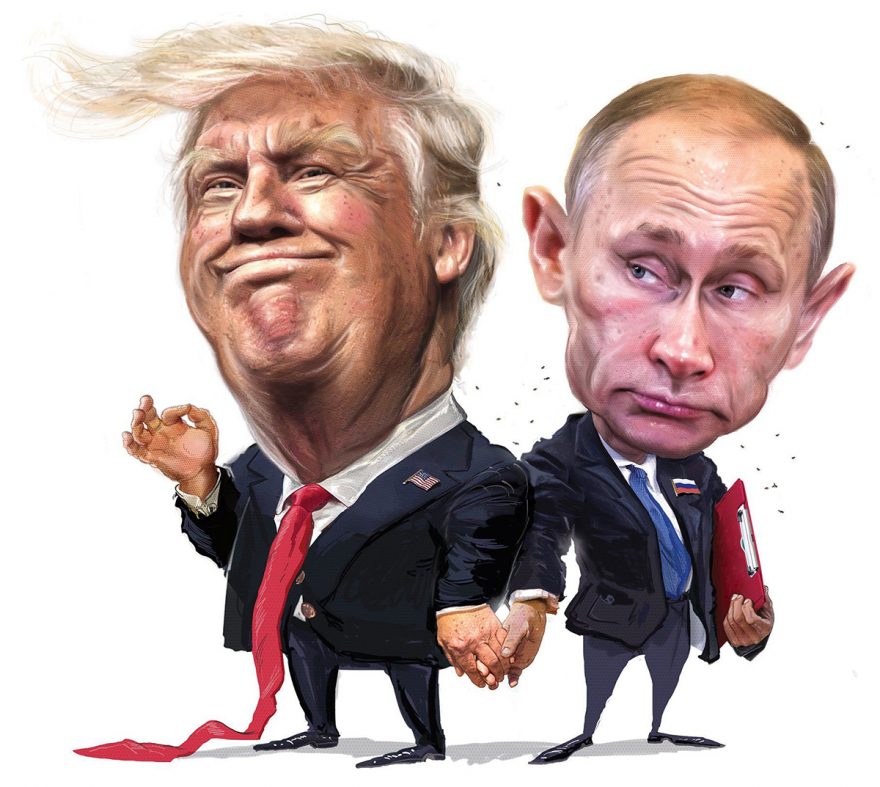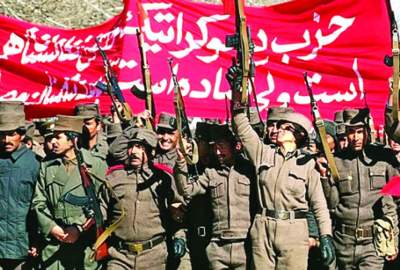Foreign Minister Mohammad Javad Zarif tells the UN Security Council (UNSC) that the United States is an “outlaw bully” that the world body should not surrender to, warning that giving in to Washington’s pressure threatens to restore the “law of the jungle.”
Publish dateWednesday 1 July 2020 - 12:08
Story Code : 213444
Zarif was addressing a virtual UNSC meeting on Tuesday surrounding Washington’s push to have the Council extend an arms embargo against Iran that will expire in October under a historic nuclear accord endorsed by the council’s Resolution 2231.
“The international community in general, and the United Nations Security Council, in particular, are facing an important decision,” he said.
“Do we maintain respect for the rule of law or do we return to the law of the jungle by surrendering to the whims of an outlaw bully?” the top diplomat asked.
Officially known as the Joint Comprehensive Plan of Action (JCPOA), the landmark nuclear deal was reached between Iran and the P5+1 group — the US, Britain, France, Russia and China plus Germany— in 2015. However, in May 2018, US President Donald Trump unilaterally pulled his country out of the JCPOA and later re-imposed the sanctions that had been lifted against Tehran on the back of the deal.
Although it is no longer a party to the deal, Washington has recently launched a campaign to renew the embargo on the sales of conventional weapons to the Islamic Republic that will expire under the accord in October.
To try and rationalize its bid, the US says it is still “named” as a JCPOA partner in the UN Security Council Resolution 2231. Tehran and other JCPOA partners say Washington, due to its unilateral withdrawal, has forfeited all rights to have a say in the agreement.
Zarif warned, “If this council falters again, it will be a generational setback for the cause of multilateralism, and the rule of law.”
He reminded, “We have all, in past years, seen how malign US unilateralism has intensely assaulted international cooperation and international institution,” adding, “Its (the US’s) parallel endeavor to supplant international law with US domestic laws has directly undermined global peace and security.”
The foreign minister deplored the “complacency” that has allowed Washington to come this far.
Zarif also noted how Iran continued to observe the JCPOA’s provisions even despite the US withdrawal and its European allies’ “over-compliance” with Washington’s so-called “maximum pressure” campaign against Tehran.
Note of warning
Zarif said the European parties had to ensure Iran's legitimate benefits by fulfilling their JCPOA commitments.
Otherwise “Iran will have no option but to restore a semblance of balance” to retaliate against their non-compliance to their contractual commitments, he added.
He also called for convention of another ministerial meeting of the JCPOA’s remaining partners to look at the status quo.
Zarif, meanwhile, wondered how come the UN had come to pick on Iran while “not a single” Council session has been convened to address the US’s egregious violations.
US Secretary of State Mike Pompeo had addressed the session earlier, claiming that the removal of the embargo would place the Middle East region’s security at risk.
“Iran will hold a sword of Damocles over the economic stability of the Middle East, endangering nations like Russia and China that rely on stable energy prices,” he claimed.
Veto-wielders China and Russia have voiced opposition to any US attempt at prolonging the ban. Pompeo’s apparent attempt at currying favor with the two states also came in sheer contrast with Washington’s incessant smear campaign against them.
Russia, China berate US
The countries’ envoys took the chance to berate Washington for its anti-Tehran push.
Russia’s Vasily Nebenzia warned about an “uncontrollable escalation” as the United States keeps up the push.
He said Washington would not be allowed to try and have the Security Council legitimize its “maximum pressure” policy — under which Trump ordered the withdrawal from the JCPOA and return of the sanctions against Iran.
“We cannot accept an attempt to get a blessing for the US-desired maximum pressure policy through the Security Council, to legitimize it,” he said. “What we get in the end is an uncontrollable escalation.”
In turn, Chinese envoy Zhang Jun underlined that “having quit the JCPOA, the US is no longer a participant and has no right to trigger a snapback at the Security Council,” referring to another intention announced by Washington to try and restore all UN sanctions against the Islamic Republic.
‘UN targets Iran, absolves child killers’
The virtual UNSC meeting, meanwhile, heard a report by UN Secretary-General Antonio Guterres — seen by Reuters on June 11 — in which he had told the Council that cruise missiles used in several attacks on oil facilities and an international airport in Saudi Arabia in November 2019 and February 2020 had been of “Iranian origin.” He had also said the “items may have been transferred in a manner inconsistent” with the Resolution.
Zarif said the report has been adopted by the UN Secretariat under pressure from the US and some others, calling it “a perverse reading of Resolution 2231.”
“This one-sided interpretation by the Secretariat has been repeatedly rejected by three JCPOA participants, China, Russia and Iran, and let me take this opportunity now to thank Russia and China and other members of the Security Council, who have expressed their concern over this,” he added.
“Not surprisingly, the Secretariat simultaneously tried to absolve the Saudi coalition of its well-documented child-killing in Yemen,” the Iranian top diplomat said.
He also underlined how the US has been generously arming the 2015-present Saudi-led war on Yemen.
“The international community in general, and the United Nations Security Council, in particular, are facing an important decision,” he said.
“Do we maintain respect for the rule of law or do we return to the law of the jungle by surrendering to the whims of an outlaw bully?” the top diplomat asked.
Officially known as the Joint Comprehensive Plan of Action (JCPOA), the landmark nuclear deal was reached between Iran and the P5+1 group — the US, Britain, France, Russia and China plus Germany— in 2015. However, in May 2018, US President Donald Trump unilaterally pulled his country out of the JCPOA and later re-imposed the sanctions that had been lifted against Tehran on the back of the deal.
Although it is no longer a party to the deal, Washington has recently launched a campaign to renew the embargo on the sales of conventional weapons to the Islamic Republic that will expire under the accord in October.
To try and rationalize its bid, the US says it is still “named” as a JCPOA partner in the UN Security Council Resolution 2231. Tehran and other JCPOA partners say Washington, due to its unilateral withdrawal, has forfeited all rights to have a say in the agreement.
Zarif warned, “If this council falters again, it will be a generational setback for the cause of multilateralism, and the rule of law.”
He reminded, “We have all, in past years, seen how malign US unilateralism has intensely assaulted international cooperation and international institution,” adding, “Its (the US’s) parallel endeavor to supplant international law with US domestic laws has directly undermined global peace and security.”
The foreign minister deplored the “complacency” that has allowed Washington to come this far.
Zarif also noted how Iran continued to observe the JCPOA’s provisions even despite the US withdrawal and its European allies’ “over-compliance” with Washington’s so-called “maximum pressure” campaign against Tehran.
Note of warning
Zarif said the European parties had to ensure Iran's legitimate benefits by fulfilling their JCPOA commitments.
Otherwise “Iran will have no option but to restore a semblance of balance” to retaliate against their non-compliance to their contractual commitments, he added.
He also called for convention of another ministerial meeting of the JCPOA’s remaining partners to look at the status quo.
Zarif, meanwhile, wondered how come the UN had come to pick on Iran while “not a single” Council session has been convened to address the US’s egregious violations.
US Secretary of State Mike Pompeo had addressed the session earlier, claiming that the removal of the embargo would place the Middle East region’s security at risk.
“Iran will hold a sword of Damocles over the economic stability of the Middle East, endangering nations like Russia and China that rely on stable energy prices,” he claimed.
Veto-wielders China and Russia have voiced opposition to any US attempt at prolonging the ban. Pompeo’s apparent attempt at currying favor with the two states also came in sheer contrast with Washington’s incessant smear campaign against them.
The countries’ envoys took the chance to berate Washington for its anti-Tehran push.
Russia’s Vasily Nebenzia warned about an “uncontrollable escalation” as the United States keeps up the push.
He said Washington would not be allowed to try and have the Security Council legitimize its “maximum pressure” policy — under which Trump ordered the withdrawal from the JCPOA and return of the sanctions against Iran.
“We cannot accept an attempt to get a blessing for the US-desired maximum pressure policy through the Security Council, to legitimize it,” he said. “What we get in the end is an uncontrollable escalation.”
In turn, Chinese envoy Zhang Jun underlined that “having quit the JCPOA, the US is no longer a participant and has no right to trigger a snapback at the Security Council,” referring to another intention announced by Washington to try and restore all UN sanctions against the Islamic Republic.
‘UN targets Iran, absolves child killers’
The virtual UNSC meeting, meanwhile, heard a report by UN Secretary-General Antonio Guterres — seen by Reuters on June 11 — in which he had told the Council that cruise missiles used in several attacks on oil facilities and an international airport in Saudi Arabia in November 2019 and February 2020 had been of “Iranian origin.” He had also said the “items may have been transferred in a manner inconsistent” with the Resolution.
Zarif said the report has been adopted by the UN Secretariat under pressure from the US and some others, calling it “a perverse reading of Resolution 2231.”
“This one-sided interpretation by the Secretariat has been repeatedly rejected by three JCPOA participants, China, Russia and Iran, and let me take this opportunity now to thank Russia and China and other members of the Security Council, who have expressed their concern over this,” he added.
“Not surprisingly, the Secretariat simultaneously tried to absolve the Saudi coalition of its well-documented child-killing in Yemen,” the Iranian top diplomat said.
He also underlined how the US has been generously arming the 2015-present Saudi-led war on Yemen.
Source : Afghan Voice Agency(AVA)
avapress.com/vdchkxnik23nzkd.01t2.html
Tags
Top hits
